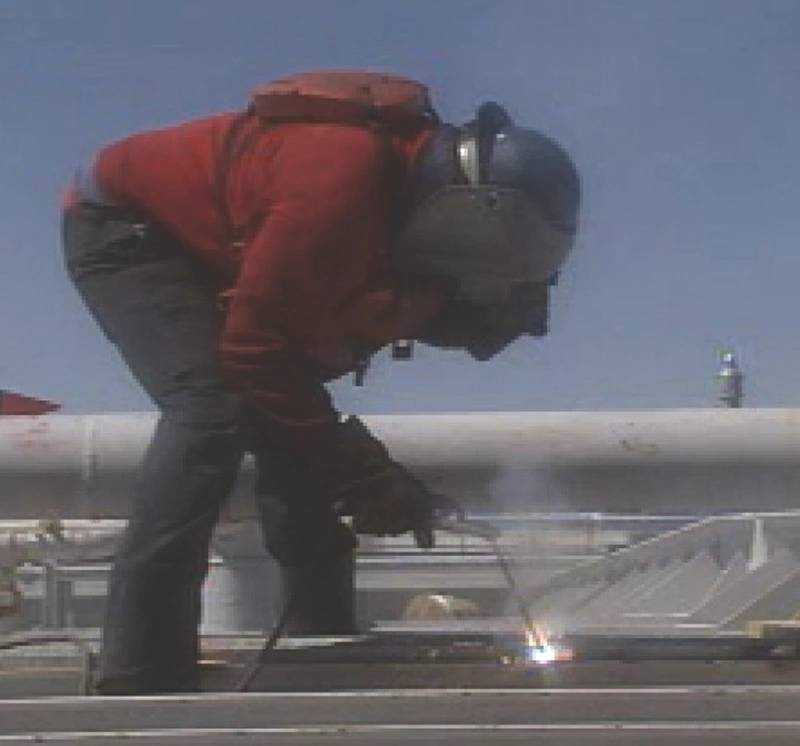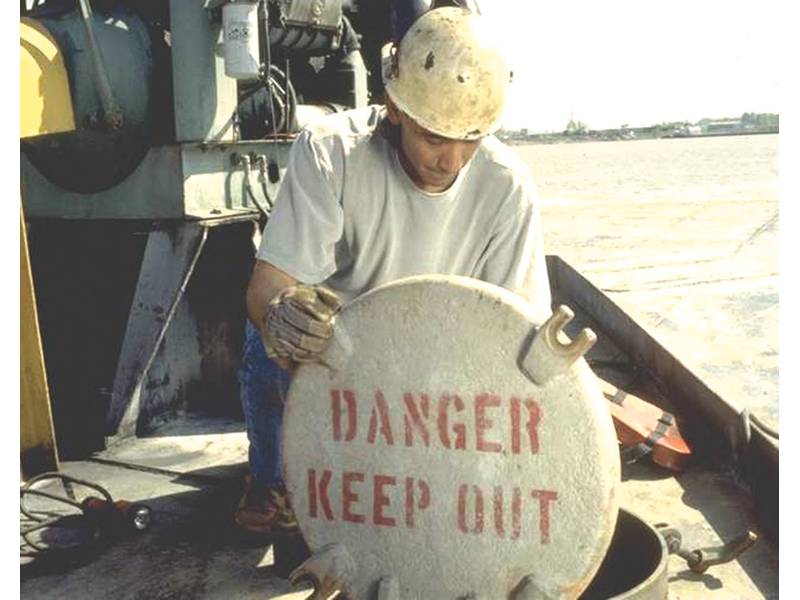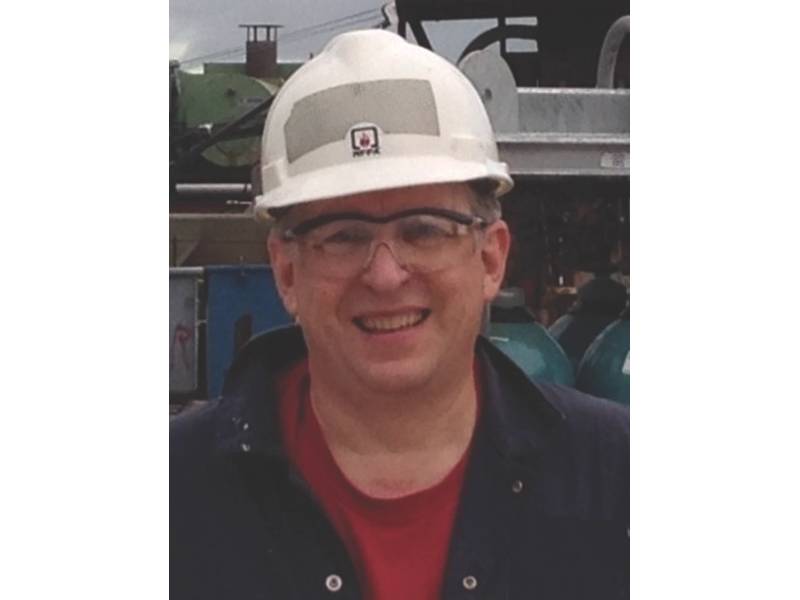NFPA Certificated Marine Chemists – A Century of Fire Protection and Life Safety
As the National Fire Protection Association (NFPA) Technical Committee on Gas Hazards votes on the First Draft of the next edition of NFPA 306, Standard for the Control of Gas Hazards on Vessels, the NFPA Certificated Marine Chemist Program will mark 100 years of fire protection and life safety on marine vessels, in shipyards, marine terminals and waterfront facilities.
What started a century ago as an industry effort to prevent fires on vessels under repair has never been more important. According to a 2007 report of the U.S. Bureau of Labor Statistics, approximately 25 percent of fatalities in shipyards result from fires and explosions caused by hot work (welding, cutting, burning, abrasive blasting, and other heat-producing operations).
Following the First World War, numerous fires and explosions occurred when ships were being converted from troop transport vessels to their original purpose as bulk carriers and cargo vessels. Vessel owners, shipyards and marine insurers all recognized that something had to change. Marine industry representatives including the American Bureau of Shipping (ABS) asked NFPA for assistance in the development of a fire prevention standard specific to the hazards found on marine vessels while being repaired in shipyards. In 1922 the Regulations Governing Marine Fire Hazards, Appendix “A”, Having to Do with the Freeing of Tanks of Flammable and Explosive Vapors Previous to Making Repairs, was adopted by the NFPA.
From the beginning the unique feature of the Regulations was the requirement for the tanks that were the subject of hot work to be tested and inspected by a certified competent chemist whose ability and reliability was attested to by the ABS. These chemists were for the most part employed in the laboratories of petroleum refineries. So, they understood the properties and characteristics of the petroleum products that were carried as fuel and cargo on marine vessels.
The ABS certified the “gas chemists”, until 1963 when the NFPA agreed to assume full responsibility for marine chemist training and certification. To accomplish this mission the NFPA established the Marine Chemist Qualification Board (MCQB). The Board is comprised of representatives from the marine insurance industry; tank vessel operators; shipbuilding or vessel repair industry; Marine Chemist Association; a practicing Marine Chemist; Occupational Safety and Health Administration (OSHA); U.S. Coast Guard and U.S. Navy.
The MCQB is responsible for establishing the NFPA Rules for the Certification and Recertification of Marine Chemists. The Board acts on applications for certification and recertification of marine chemists and the registration of trainees. It also reviews accident reports that involve marine chemists and when necessary, takes disciplinary action which can include the suspension, cancellation, or the revocation of a marine chemist’s qualification documents.

Marine chemists have a combination of academic knowledge and professional expertise. The marine chemist is required to quantitatively and qualitatively determine the severity of the hazards that are present in the tanks or compartments where work is to occur and the adjacent spaces. These hazards include oxygen deficiency, flammable gas or toxic vapor associated with cargo or fuel products, or combustible materials that may be present at the time of the inspection.
NFPA 306 is the document that a marine chemist is required to use when he or she performs this job-site hazard analysis (JHA). This standard provides minimum requirements and conditions that are necessary before a space can be entered or before work can be started, continued, or started and continued on any vessel under construction, alteration, or repair, or on any vessel awaiting shipbreaking. The requirements of the current edition of NFPA 306 can be traced back to 1922 and Appendix A of the Regulations Governing Marine Fire Hazards.
Upon completion of the JHA the marine chemist will issue a Marine Chemist’s Certificate that documents the results of the survey. Both OSHA and the US Coast Guard require a Marine Chemist’s Certificate is posted for hot work in, on or adjacent to tanks, spaces or compartments that contain or previously contained combustible or flammable liquids or flammable gas. Presently there are 93 NFPA Certificated Marine Chemists located in ports throughout the continental United States, Hawaii, Alaska, and Guam. Together these marine chemists write about 31,000 Marine Chemist’s Certificates each year.
It's fitting that NFPA 306 has entered the revision cycle for the 2024 edition just as the marine chemist program enters its second century. The first draft of the next edition of NFPA 306 will be available on the NFPA website for public review and comment on March 22, 2022.
What began as an experiment in 1922 continues today and serves as a testament to a successful industry-and-government partnership. For 100 years the NFPA Certificated Marine Chemist has been the professional who the marine transportation industry and shipyard industry has relied upon for confined space safety and fire prevention on marine vessels, in marine terminals and in shipyards. As the NFPA Certificated Marine Chemist program enters a new century of service to its stakeholders, marine chemists will continue to apply NFPA 306 to assure the safety of workers and to protect shipyards, marine terminals, and waterfront facilities from fire.
If you would like more information about the NFPA Certificated Marine Chemist Program or NFPA 306, Standard for the Control of Gas Hazards on Vessels, please go to the NFPA website: www.nfpa.org


